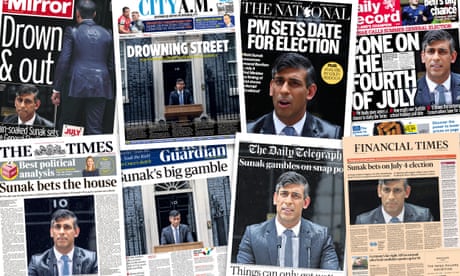
For 22-year-old Barkat Ali, the floods of 2022 might have washed away his home, but not his dreams of a better future.
The eldest of five siblings, Barkat was among the at least seven million Pakistanis who were displaced in the ‘biblical’ floods of two years ago. An October 2023 report of the International Office of Migration (IOM) said that over a million of those displaced were yet to be resettled.
Barkat’s family, which hails from Lower Kohistan in the country’s northern Khyber Pakhtunkhwa (KP) province, is among those unfortunate ones. They had to leave their homes in Baneel — a small village surrounded mostly by pine trees in the Dubair Valley — with “only the clothes on their back,” he tells Eos.
Before moving to the town of Oghi in nearby Mansehra, Barkat and his family spent over a year in a relative’s field nearby, sleeping under the open sky.
During this time, continues Barkat, the family was hopeful of returning to their land and rebuilding their house. “While we had lost our home and cattle, we still had land,” he says, adding that they grew enough wheat and maize as well as fruits and vegetables to not have to worry about food.
While the 2022 floods caused mayhem nationwide, such climate-induced calamities are happening more frequently in Pakistan’s mountainous north. In a once prosperous and scenic valley in Kohistan, forced migrations are turning into an exodus
But the slow pace of reconstruction — the public health facilities in Dubair that were damaged during the flood have not yet been reconstructed, while the hydroelectric power station on the Dubair River in Ranolia also remains offline — compelled them to seek refuge elsewhere.
“Everything is gone,” he continues wistfully, as he takes a break from his work as a daily-wage labourer in Oghi, Mansehra. “It was not easy to leave our home,” says Barkat. “Everyone cried a lot. My father was constantly turning back to have another look at his village, not knowing whether he would ever be able to return.”
Barkat’s 65-year-old father, like his son, works as a daily-wage labourer to help the family in their struggle for survival and to help his son continue his dream of getting an education.
Barkat is enrolled in a distance learning programme at an Islamabad university, studying digital media marketing and broadcasting, using only his smartphone.

COMPOUNDING PROBLEMS
Maulana Fazal Wahab, the chairman of Ranolia tehsil, says more than 60 percent of the roughly 100,000 people of the area have migrated to other areas since 2010.
The migrations took place in the wake of floods in 2010, 2016, 2019, 2022 and, most recently, in April this year, following heavy rainfall and flooding that, according to the Provincial Disaster Management Authority (PDMA) KP, claimed 63 lives in the province.
It is not just torrential rains that disrupt and imperil life in these areas. Landslides are known to cause fatal accidents and, in the wake of rising global temperatures, the threat of glacial lake outburst floods (GLOF) has also emerged in KP and Gilgit Baltistan (GB).
The ministry of climate change says glaciers in the country’s northern mountain ranges (the Hindu Kush, Himalayas and Karakorum) are melting rapidly. A total of 3,044 glacial lakes have developed in GB and KP. While glacial lakes may have been forming over geological timescales, their rapid proliferation and expansion in Pakistan are more closely associated with the past century or so, particularly as global temperatures have risen.
“Of these, 33 glacial lakes have been assessed to be prone to hazardous GLOF,” the ministry writes on its website. It claims more than seven million people, in the two regions, are vulnerable to the dangers posed by GLOF.
This compounds the concerns of the locals, including in various areas of Lower Kohistan — such as Ranolia, Dubair Bala and Dubair Khas — where flash floods have become more frequent. The flooding also damages bridges and river crossings, disconnecting the valley from the Karakoram Highway and greatly limiting access and the mobility of the local population.
Wahab, the tehsil chairman, says a 37-kilometre stretch of the Ranolia-Dubair main road and the roads in the Ranolia valley have been completely washed away by the floods several times. “People have no choice but to leave the area, because life comes to a complete standstill [in the wake of such disasters],” he tells Eos.
Barkat says that, during such situations, the locals are often left with no choice but to reconstruct and repair the roads and bridges on a self-help basis.
“However, it is unfair to expect from people — who have lost everything including their home, land and livelihood — to contribute to road repair under such circumstances,” he says.

UPENDED LIVES
Muhammad Riaz, a teacher, lived a happy life with his wife and eight children. He had a 12-room house on a terraced mountain along the Dubair River. During the floods in April, the torrential rains triggered landslides and his house caved in in a matter of minutes.
“My world has completely collapsed,” he tells Eos. “It wasn’t just a house for me. It was the centre of my dreams.” He says his family has no option but to leave.
But with exits from the village, including pedestrian paths, yet to be repaired, he has chosen to stay in the area for the time being and not risk “the treacherous terrain” with his young family.
Riaz says that, in order to buy essentials, he has to walk for seven hours to the market in Ranolia — with the journey including parts that require a steep upward climb.
He says the situation is desperate, with food and water shortage rampant. He is also worried about his children and the uncertain future facing them. “They want to go to school, but there is no means of getting there,” he says. “Every day I tell them that everything is going to be okay. But deep down, I know that we are all on a long and hard road, and that this road has no end in sight.”
Healthcare is the other major casualty, particularly during calamities in far-flung and smaller areas. The public health centres, including the rural health centre and basic health units, were damaged last month and are out of commission.
Patients from across the valley have to be carried — mostly on makeshift wooden stretchers locally known as dangai — to the sole privately operated hospital in the main town of Dubair. At a large number of points, the path is narrow and zigzags a lot. Sometimes, it can take hours to get the patient, in need of timely medical care, to the hospital.
Yar Gul, from a nearby village, had brought a patient to the hospital. He says it took him and nearly 20 other relatives around 12 hours to get to the hospital.
A teenage boy, who was hit in the head by a stone, wasn’t so lucky, says Gul. “He died during the trip and the family had to return midway.”
NOT UNUSUAL APATHY
The assistant commissioner (AC) of Ranolia, Iqbal Hussain Khattak, says the biggest challenge for people, particularly in villages in the Dubair Valley, is the loss of their crops and the inundation of their agricultural lands.
While crediting his employers, the state, for doing “its part” for the rehabilitation work in Dubair, the bureaucrat acknowledges that more resources and funds are needed, as well as alternative settlements and funds for a road that is constructed at a distance from the river.
The AC says the administration had shifted vulnerable families to government buildings in 2022 and claimed that some of those families were still living there.
“But the majority have migrated to bigger cities and towns in search of a better life, and to create a distance between them and the areas susceptible to climate-induced disasters.”g
The writer is Dawn’s correspondent in Shangla, KP.
X: @umar_shangla
Published in Dawn, EOS, May 19th, 2024












